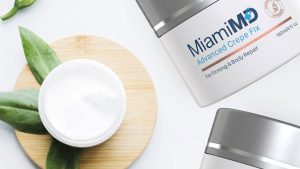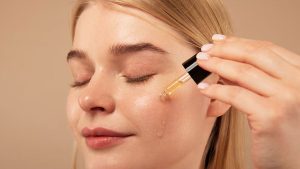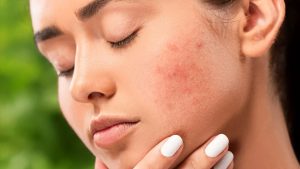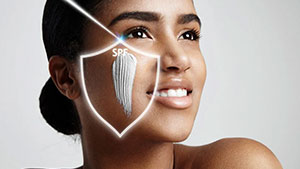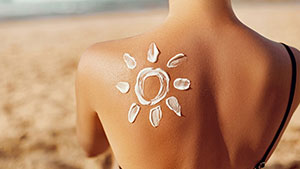Is Sunscreen Important?
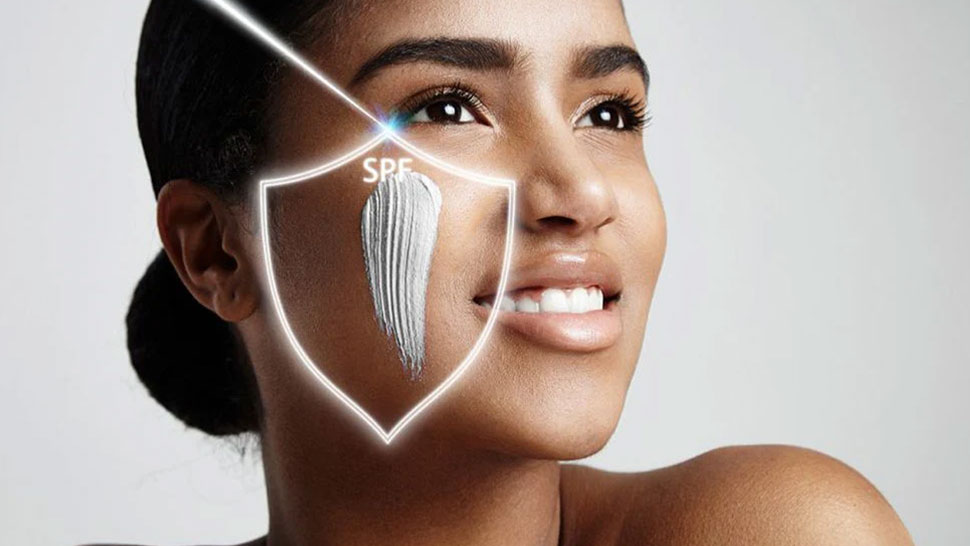
When it comes to skincare, sunscreen is often mentioned as a must-have step in your routine. But how important is it really? Sunscreen is not just a summer essential. It’s a year-round protector that shields your skin from harmful UV rays, reduces the risk of skin cancer, and keeps your skin looking youthful and healthy.
To truly understand the importance of sunscreen and sun safety, let’s consider the different types available and why it should be a non-negotiable part of your daily routine.
What Is Sunscreen?
Sunscreen is a skincare product that protects your skin from the sun’s harmful ultraviolet (UV) rays. UV rays are divided into two main types: UVA and UVB.
UVA rays penetrate deep into the skin, causing premature aging and wrinkles, while UVB rays are primarily responsible for sunburn. Both types of rays contribute to skin cancer.
Dermatologist Dr. Rachel Nazarian from Schweiger Dermatology Group explains, “Think of sunscreen as a shield. It absorbs or reflects harmful UV rays before they penetrate your skin and cause damage. Without it, you’re leaving your skin vulnerable to both immediate and long-term harm” (1).
Sunscreen protection comes in various forms to suit different lifestyles and preferences, which we’ll explore in the next section.
What Are the Different Forms of Sunscreen?
Sunscreen is available in multiple forms to protect skin from sun damage, making it easy to find one that fits seamlessly into your routine. Whether you’re looking for something lightweight, portable, or easy to apply, there’s a sunscreen out there to suit your specific needs and preferences.
Each form has unique benefits, and choosing the right one generally depends on your lifestyle, skin type, and how you plan to use it.
Gone are the days when sunscreen meant thick, greasy creams that left a white cast on your skin. Today, advancements in skincare have made sunscreens more versatile and user-friendly. This means you can find a product that protects your skin and enhances your skincare routine in a way that feels effortless.
Here are the most common forms of sunscreen, along with their advantages and best uses:
Lotions
Lotions are the most traditional form of sunscreen and are often favored for their versatility. They’re ideal for covering large areas of skin and tend to offer more consistent protection when applied properly.
Sprays
Sprays are convenient for quick application, especially on hard-to-reach areas like your back. However, dermatologists often caution against relying solely on sprays.
“With sprays, people tend to miss spots or apply too thin of a layer,” says Dr. Mona Gohara, associate clinical professor of dermatology at Yale School of Medicine. “Always rub it in after spraying to ensure full coverage” (2).
Gels
Gels are great for oily or acne-prone skin, as they tend to be lightweight and non-greasy. They’re also popular for areas with hair, like the scalp or chest, because they don’t leave a residue.
Sticks
Sunscreen sticks are portable and mess-free, making them a favorite for on-the-go touch-ups. They’re especially useful for targeted areas like the face, ears, and lips.
What Are the Types of Sunscreen Formulas?
Sunscreens are typically categorized into two main types: chemical and mineral. Each has its unique properties and benefits for UV protection, and understanding the difference can help you choose the best option for your skin type and lifestyle.
Choosing between chemical and mineral sunscreen often comes down to personal preference, skin concerns, and how you plan to use it. While both types offer effective protection against harmful UV rays, they work differently. The choice you make can impact not only how your skin feels but also how well your sunscreen performs in specific conditions.
Here’s a closer look at the two categories to help you make an informed decision.
Chemical Sunscreen
Chemical sunscreens absorb UV rays and convert them into heat, which is then released from the skin. These sunscreens tend to be lightweight and blend easily into the skin, making them a popular choice for daily use.
Mineral Sunscreen
Also known as physical sunscreens, mineral sunscreens use ingredients like zinc oxide or titanium dioxide to create a protective barrier that reflects UV rays away from the skin.
“Mineral sunscreens are great for sensitive skin because they sit on the surface rather than being absorbed,” says Dr. Gohara.
Why Is Sunscreen Important?
The importance of sunscreen cannot be overstated. It’s not just another step in your skincare routine. It’s the most crucial one.
Whether you’re spending a day outdoors, sitting by a window, or even running errands on a cloudy day, your skin is constantly exposed to the sun’s harmful UV rays.
Sunscreen acts as your skin’s first line of defense, protecting it from both immediate harm, like sunburn, and long-term effects, such as wrinkles, discoloration, or more severe health risks. Dermatologists agree that sunscreen is a non-negotiable part of maintaining healthy, resilient skin.
Here’s why it should be a cornerstone of your skincare routine:
Protects Against Harmful UV Rays
The sun emits UVA and UVB rays that can damage your skin, even on cloudy days. Sunscreen acts as a barrier, minimizing this damage.
“Just five minutes of unprotected sun exposure daily can add up to significant skin damage over a lifetime,” warns Dr. Gohara.
Helps Reduce Skin Cancer Risk
Skin cancer is one of the most common cancers in the world, and UV radiation is a leading cause. Regular use of sunscreen in your saily skincare routine can dramatically reduce your risk.
The Skin Cancer Foundation states that consistent sunscreen use reduces the risk of melanoma, the deadliest form of skin cancer, by 50% (3).
Prevents Premature Skin Aging
UV rays cause elastin and collagen breakdown in the skin, leading to wrinkles, fine lines, and sagging. Plus, UV exposure can contribute to an accumulation of free radicals and photoaging. Using sunscreen daily helps preserve your skin’s youthful appearance.
“Sunscreen is the best anti-aging product you can buy,” says Dr. Whitney Bowe, a board-certified dermatologist. “It protects your skin’s structure and prevents the need for expensive treatments later” (4).
Helps Maintain an Even Skin Tone
Hyperpigmentation, or dark spots, is often caused by sun exposure interacting with melanin production. Sunscreen prevents these spots from forming and can help existing ones fade over time.
“Patients who use sunscreen consistently often notice a more even skin tone within a few months,” says Dr. Nazarian.
How To Choose the Right Sunscreen
With so many options available, choosing the right sunscreen can feel overwhelming. From different SPF levels to various formulations and ingredients, the choices can leave you wondering which is truly best for your skin.
The good news is that finding the perfect sunscreen doesn’t have to be complicated. It all comes down to understanding your skin’s needs, your daily habits, and what level of protection you’re looking for.
To help make the process easier, here are some tips and factors to consider when choosing a sunscreen:
SPF Ratings
SPF, or sun protection factor, measures how well a sunscreen protects against UVB rays. Dermatologists recommend using an SPF of at least 30, which blocks 97% of UVB rays.
Broad-Spectrum Protection
Look for sunscreens labeled “broad-spectrum,” as they protect against both UVA and UVB rays. This ensures comprehensive protection, shielding your skin from UVA rays that cause premature aging and UVB rays that cause sunburn.
Key Ingredients
For chemical sunscreens, look for ingredients like avobenzone or octinoxate. For mineral sunscreens, zinc oxide or titanium dioxide are your go-to ingredients.
Choose a formula you enjoy applying so you’re more likely to make it a daily habit.
How To Apply Sunscreen
Proper application is just as important as choosing the right sunscreen. Even the best sunscreen won’t provide adequate protection if it’s not applied correctly.
Knowing how to apply sunscreen effectively ensures you get the full benefits of its protective properties. Plus, taking the time to rub it in thoroughly can make a significant difference in preventing sunburn, premature aging, and long-term skin damage.
Here’s a step-by-step guide to applying sunscreen effectively:
Amount
Use a nickel-sized amount for your face and a shot-glass worth for your body. Don’t forget areas like your ears, neck, and hands. These areas are often overlooked and are just as vulnerable to sun damage.
Frequency
Reapply every two hours — or more often if you’re swimming or sweating. Even water-resistant sunscreens lose their effectiveness over time, so consistent reapplication is key to maintaining protection throughout the day.
Special Considerations
Opt for water-resistant sunscreen if you’re swimming or engaging in outdoor activities. Even water-resistant formulas need to be reapplied after 40-80 minutes in the water.
“Don’t rely on makeup with SPF alone,” warns Dr. Gohara. “While it’s a nice bonus, it doesn’t provide the same level of protection as a dedicated sunscreen.”
Wrapping Up
Sunscreen isn’t just a skincare product. It acts as a crucial tool for protecting your skin’s health and appearance. Whether you’re spending the day at the beach or running errands on a cloudy day, sunscreen should be a part of your daily routine.
By choosing the right sunscreen and applying it correctly, you can prevent sun damage, reduce your risk of skin cancer, and maintain a youthful, even complexion. Your future self will thank you for every single day you wore sunscreen.
So, is sunscreen important? Absolutely. It’s one of the simplest and most effective ways to care for your skin today and protect it for years to come.
Sources:
- Britannica. “How does sunscreen work to protect skin?”
https://www.britannica.com/video/sunscreen-human-skin-ultraviolet-radiation/-207855 - American Academy of Dermatology. “How to use stick and spray sunscreens.”
https://www.aad.org/public/everyday-care/sun-protection/shade-clothing-sunscreen/how-to-use-stick-spray-sunscreens - Skin Cancer Foundation. “All About Sunscreen.”
https://www.skincancer.org/skin-cancer-prevention/sun-protection/sunscreen/ - The Conversation. “Sunscreen: here’s why it’s an anti-ageing skincare essential.”
https://theconversation.com/sunscreen-heres-why-its-an-anti-ageing-skincare-essential-187322
